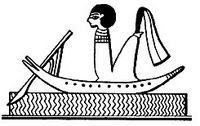Remember who brought us to the dance of life
"Otto said that becoming aware of the numinous involves an extraordinary sensation that stretches our idea of religion beyond ethics and belief to include a deeper appreciation of the holy. It leads us to recognize the existence of a mysterious God as well as our creatureliness. Numinosity brings with it a sense of awe, wonder and sometimes even dread.Father Lou then quotes Thomas Moore, "With its emphasis on efficiency and practicality, modern life works against sustained appreciation of the numinous," writes Thomas Moore. "Although at times nature overwhelms us so that in spite of ourselves we have to consider it seriously, as when an earthquake, flood or eclipse of the sun stirs us out of our forgetfulness."
Colloquially, this kind of philosophical talk means that sometime in our life we'll come to the personal realization that we have been brought to the dance of life by God. We'll know that our creation and invitation to the dance of life comes not because we've earned it or impressed God by our deeds or goodness - but just because he loves us and wants us here.
[snip]
Otto became so deeply appreciative of our being seized by the numinous, that it led him to define God in the celebrated words mysterium tremendum et fascinans - a tremendous and fascinating mystery. Notice how his understanding transcends the pitiful attitude toward legitimate religion today!"
Father Lou says Carl Jung also wrote about numinosity, "In an essay shortly before his death, Jung warned against our loss of appreciation of the numinous. He cited the example of primitive societies that fall apart when the numinous disappears: "They lose their raison d'etre, the order of their social organizations, and then they dissolve and decay. ...We are now in the same condition. We have lost something we have never properly understood."
During this period of thanksgiving, he recommends we remember who brought us to the dance.
Labels: Numinosity, Thomas Moore


